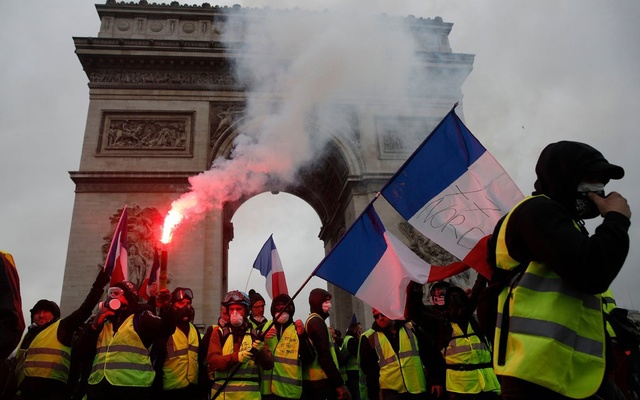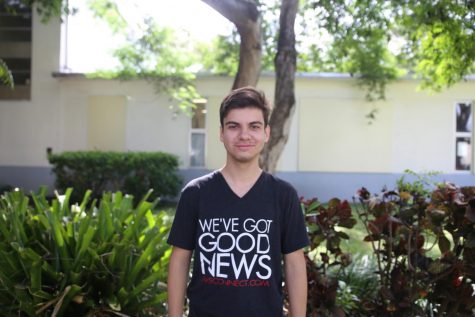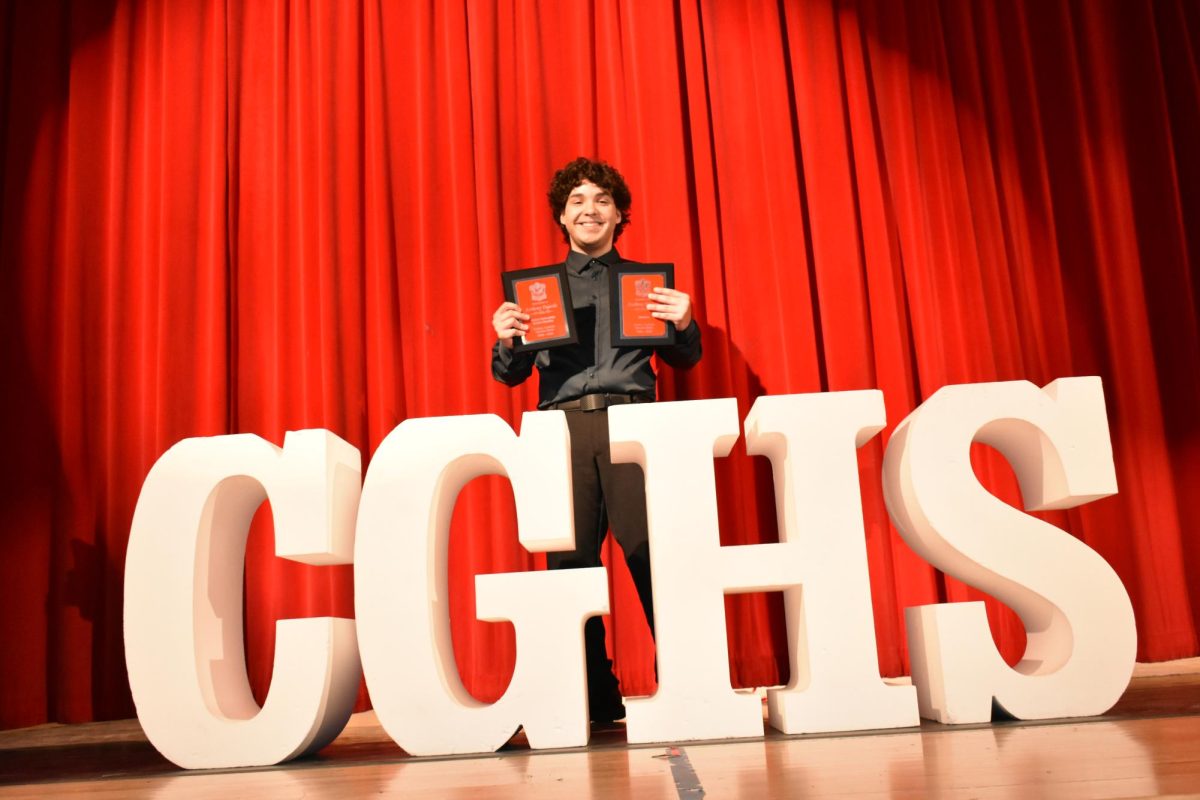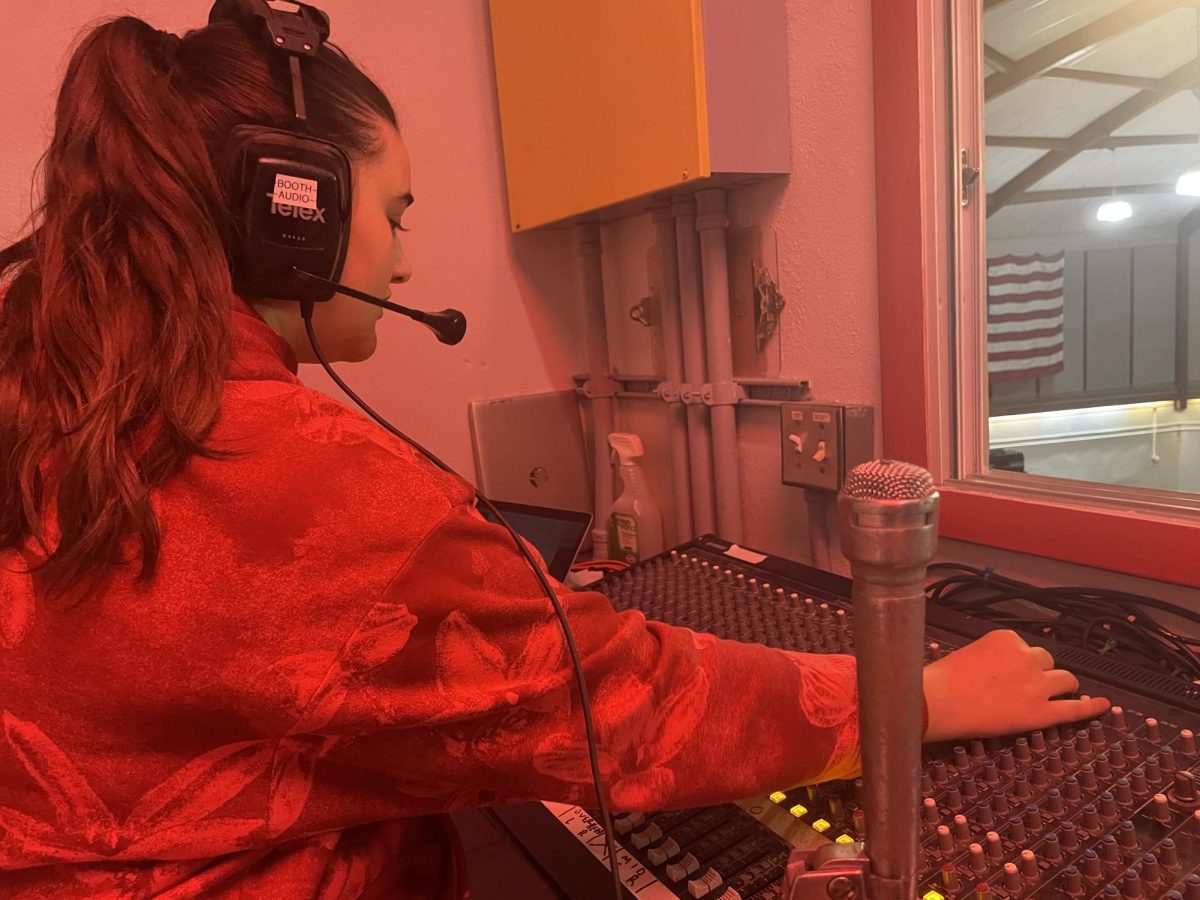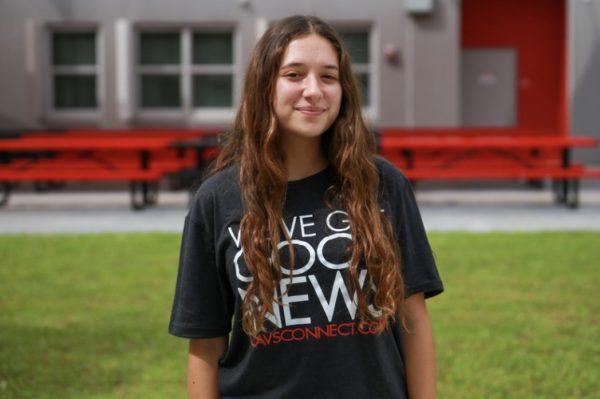France’s Fuel Crisis
Yellow Vest protesters gather in Paris.
Dec 9, 2018
At the root of any democracy is the right of the people to protest against their government and advocate for their interests. Many times, these protests are organized by an opposing political party or an interest group with the goal of rallying support for their cause. In a separate category stand the grass root protests, loosely organized and lacking major funding, but often more representative of the true sentiments of the people and a barometer for how much the public actually cares about an issue.
“The fact that so many people have taken to the streets without that much organization shows how much the issue means to the French public,” senior Sofia Villaroel said.
The resolve of France’s parliamentary democracy has been put to the test by spontaneous protests against the rising cost of living, especially after the most recent hike in fuel prices has the cost of one gallon at about six dollars. These protests have been dubbed the “Yellow Vest Protests,” as those participating wear the bright yellow vest mandated by French law that all drivers carry in their cars. The protests originated from a petition started by Priscilla Ludosky calling for a reduction in gas prices. With over one million signatures, her once scarcely seen cry for help has turned into one of the most significant events in recent French society. The protests were much more popular during their initial week, with over 300 thousand people gathering daily. This number has slowly dwindled to around 150 thousand a day, but their consistent attendance has surprised many, as they lack organization. There was no massive, funded campaign to get people onto the street; the protesters around the nation felt so strongly about the issue that they just took to the streets. The main concentration of people are gathered in Paris, but there are smaller events in numerous other major French cities.
The ire of the protesters has led to many confrontations with police, resulting in over 200 injuries and three deaths during the protest’s two-week life. About 400 people were arrested due to the rioting that has left some parts of Paris in disarray. French Prime Minister Eduoard Phillipe announced in a nationally televised address that there would be a six month moratorium on the proposed fuel tax hikes. The demonstrations have clearly worked. Although, the Yellow Vest leaders have said the moratorium does not suffice, they want legislation protecting the fuel tax. The effectiveness of these violent protests has raised concerns about just how far a democracy can go to protect the right of its people to protest and still maintain order and the semblance of safety during these demonstrations. There are clear lines in the sand as to when a protest goes too far and police can step in to disband the masses, but in light of the violence and death stemming from the Yellow Vest protests, should the police have the ability to preemptively shut down protests to avoid confrontation? Are violent protests the best means to effect change?
The easy answer is no, a fundamental right of a democracy should be assured to every member protected by the constitution, and as the right to assemble is so important not only to the U.S. democracy, but also those around the world, the easy answer works best in this scenario. A government that answers to the people should be responsible for allowing these very people to express their grievances. A prediction of violence is hard to quantify, and when weighed against a constitutional right, a prediction is not enough to deny a protest. The suppression of dissent is often not entirely deliberate in an established democracy like France, but a slippery slope towards further oppression is nonetheless present in any such relationship between a government and its citizens.
To look at this from another angle, the idea that the ends justify the means is becoming prevalent in the organization of many grass root protests. Demonstrations organized by large political corporations cannot afford to descend into violence for fear of retaliation, but when there is no official backing to a protest, when it answers to no one, the incentive to maintain calm goes out the window. As long as the government is not threatening to fully oppress its people or looking to suspend its constitution, which are clearly illegal and dangerous actions, a violent protest is always the lesser option when compared to a peaceful one. To give the opposition a talking point besides the actual grievance defeats the purpose of protest; giving them a means to discredit the demonstration not on its merits but on clearly flagrant behavior is beyond foolish.


